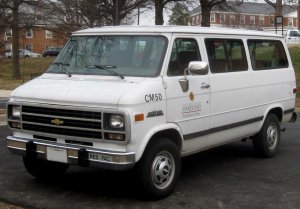
Photo credit here.
I came to you for training when I was 18.
I was one of several young women who hung on your every word, eager for your attention, your approval, any sign of special favor. We were your first recruits–pups in a large and rowdy litter, away from home for the first time and climbing all over each other to get at a teat. The guys tried every bit as hard as we did but they would rather have died than seem eager. They acted knowing and peer-like. You tolerated this pretty well until you caught them doing things like wandering around the locker room drunk wearing kimonos and cowboy hats….
I’d stop by your office only to find I had to take a number. I wanted to be your number one! I wanted to be your top runner and your top girl. Girl, I was. And terribly innocent. My eyes grew large, and I froze when I learned that Siobhan, older, worldlier, and afraid of being bumped from top dog, had rumored that we were sleeping together.
I can see you standing on the track in your stupid reflective sunglasses. I knew it was more than coolness you sought. Hidden beneath the bravado was an introverted soul seeking privacy in plain sight. Where else could you hide? Necessity and convenience had landed you, along with a few of your charges, in a handful of the derelict rooms above the track office and a hop, skip, jump from the track itself. In those early days, you had no car and nowhere else to be. Your work was your life, and your life was your work. We pressed in, tails wagging, hungry.
I remember your rapid-fire gum chewing and see your bemused smile as you punctuate your observances with that quick, trademark jut of the chin. I remember your short waist and long arms. Your square hands and fingers. The port wine stain on your thigh. The smell of your sweat after a run. Nobody else smells like that.
I stroked your cheek now and then. It sounds more intimate than it was. We all stroked your cheek. You bragged that you had been showering without soap for years, and it had left your skin baby soft. You had to make sure we believed you. Yep, soft as a baby’s behind.
You always were weird about food too—inspecting scrupulously for flaws and checking expiration dates. Milk had to be rushed from cow to carton. Only bananas firm and just-ripe need apply. I knew this. I’d smuggle a fresh, ice-cold pint of milk and a spotless banana out of the dining hall on my way over to visit. Low fat was an abomination. You liked your milk whole and your meat red.
If I could turn back time, I’d leave things as they were. This, despite the parts that hurt. I’m thinking of the gut-churning Tuesday/Friday interval workouts. You tested us, and we tested each other. And of course, there were the races themselves. These pains were short lived.
As I was leaving the track office one day, you joked at my freshman backside, blossoming under the tutelage of the dining hall buffet: “Harpoon that whale!” My relationship with food changed that very day, and I became a statistic.
I recall how angry you were when I failed to reappear after finishing a disastrous 1,500m at a big indoor meet. “Always come find me after a race,” you had growled. I had run off to ferment in my self loathing and had been running laps beneath the dome’s bleachers as punishment. I hated myself and was too ashamed to show my face, yet tears would not come and relieve me. Young Yvette–you went on and on about her potential–had just placed in the 800m and broken the school record. Your upset took on new meaning when I thought about a peer from another school, someone we had chatted with at meets, who had attempted the unspeakable.
Our running life wasn’t all fun and games, but good times were in no short supply. Traveling with you and the rest of the pack was a bit of a rolling slumber party. Chemistry homework, body odor, screaming muscles, and the pre-race shits were balanced by friendly banter, naps, shared meals, practical jokes and, ideally, victory.
Remember how annoyed I got with Coach Cook when I needed a bathroom stop on the way to the conference meet? No? I was in his van, and I just couldn’t hold it. Nobody wanted to be the person to stop the caravan before it was necessary. We lost time when people started spilling out of vans in search of toilets and Pop Tarts. Sometimes one van stopped, and the others kept going; and that caused other problems. We had no cell phones or Google Maps. No worries! Coach Cook had this problem licked. Thereafter, whenever a stop was needed, the driver of that van just had to move to the front of the queue while honking and holding a large, handwritten sign in the window: JANE HAS TO PEE!
You had your childish moments too. I remember how you leaned forward and stretched out your hand every time the van rolled across a state line. You crowed! You had been the first to enter! Ha! But then you had to go and listen to Bob Seger. My wretching sounds just made you more determined. “Keep passing the open windows,” you’d say.
Remember when I mooned you? Twice. Once, as I left the track in a petulant steam after a frustrating workout. Another time, I roped some of the other girls into joining me just for the shock value. An odd way to show affection, I know. But neither of us was good at it.
Now and then you’d wrap a gorilla arm around my neck so we were head to head. “Dearie,” you’d say. But you didn’t hug. I knew you loved me because you named me after cars: “Ford” on normal days–to make me run faster. “Chevy” when you were feeling silly. You named us all so we would belong. We came when called.
I glowed with pride when you called me “Bitch.” In our code, it was a term of highest respect. It meant I had reached down deep and come up with rocket fuel.
I was no longer a puppy. I had become a beast.
For two other posts on Christopher, click here and here. For another post related to college recruitment/running, click here.

